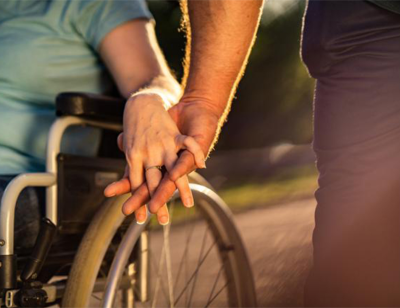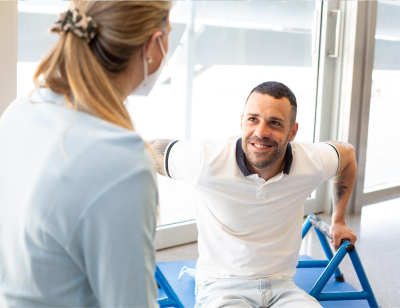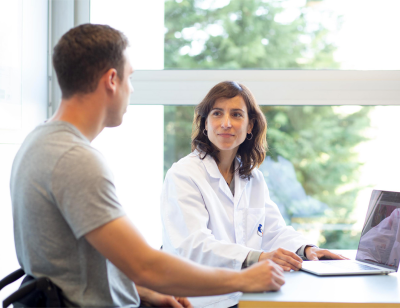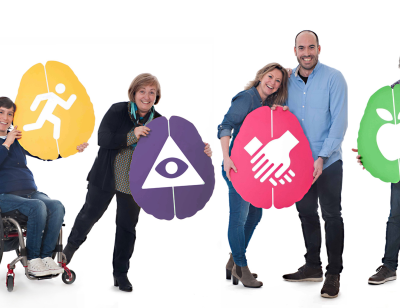The family, understood as a group in which the members help each other and provide each other with safety and care, is affected when one of the members has an illness or an accident that generates a situation of dependency (physical, emotional or cognitive) and one of the family members naturally becomes the main caregiver.
This usually entails a change of roles among the members of the family system, the family’s projects and expectations are altered, and there may even be financial repercussions (if the caregiver has to reduce the amount they work, for example, or even stop working). In addition, the caregiver has to deal with, adapt to and cope with loss, uncertainty, and worries about the future, which can lead to emotional and relationship wear and tear, leading to what we call caregiver overload.
There are certain misconceptions about what it means to care for someone properly: “I must help her in everything”, “only I know how to take care of him”, “she only wants me to take care of her”, “if I’m not there, he doesn’t eat”, “I can’t disagree with her”, “my family has to know that I need help”, “they should offer to give me a hand”. These ideas place unrealistic expectations on ourselves that can make us feel uncomfortable when we think “we aren’t giving everything we should”. This can unintentionally also lead to an overprotective situation that encroaches on the person’s capacity for self-management and self-care.
The Institut Guttman’s neurorehabilitation model considers the family as a key cog in the wheel that, together with the patient themselves and an interdisciplinary team of professionals, will help someone with an acquired disability make progress in their rehabilitation process and rebuild a fulfilling life.
It should be noted that the institute promotes respect for autonomy and empowerment as key elements when working with families caring for people with functional diversity: we foster the decision-making of the person themselves and encourage them to adopt an active attitude in managing any necessary support.
This is why the Institut Guttmann has included educational, support, orientation and information programmes aimed at family members, given the importance of supporting and responding to the needs of people who care for others and considering the family as a fundamental element in the comprehensive rehabilitation of people affected by a neurological disability:
The Meeting Point programme consists of a space for training and interactive sessions on different aspects related to disability, complemented by time to deal with specific problems individually. We also run psycho-educational groups with family members to offer them psychological support.
The Expert Caregiver Programme was also created along with the Department of Health of the Generalitat de Catalunya, and aims to promote changes in habits to improve patients’ quality of life and help them live in harmony with their caregivers by exchanging knowledge, experiences and tools among caregivers.
The Institut Guttmann’s Specialised Neurorehabilitation Assessment and Support Team (EASE) acts at different levels of care in the health and social care network with the aim of improving effective reintegration of the patient into their own surroundings, ensuring that they are receiving the correct continuing care, favouring the highest quality comprehensive and personalised care, and providing a flexible and effective system of coordination with the referring hospital. People with disabilities and their families can benefit from EASE’s professional support programmes, such as the support programme for people with acquired brain damage and their families in the community environment. It promotes healthy spaces for stimulation and facilitates occupational autonomy by exploring the person’s interests, promoting more active roles (acquiring certain responsibilities in their daily routine), and creating links with community resources that increase their participation.
The Institut Guttmann therefore accompanies patients and their families throughout the rehabilitation process and also once this is finished. In addition, it promotes social participation and inclusion so that the person can return to social and leisure activities with their loved ones and in the most mainstream way possible. Programmes like Sports&Life Guttmann Club are run with this aim in mind, so that patients and family members can enjoy doing cultural, sports and leisure activities together, safely and accompanied by professional staff.
References:
Yuguero, M. ¿Quién cuida al familiar cuidador? Revista Sobre Ruedas, nº95, 26-29.
Roig, T. “Convivir con las consecuencias del daño cerebral: Intervención con la familia”. Revista Sobre Ruedas nº86, 8-11.
Bonet, C. Comas, C. “Programa de apoyo a personas con daño cerebral adquirido y sus familias en el entorno comunitario”. Revista Sobre Ruedas, nº84, 18-23.
Moya M.J. “La asistencia personal: un servicio de apoyo fundamental”. Revista Sobre Ruedas, nº99, 13-19.
Busquets, E. “El cuidado y los derechos humanos”. Revista Sobre Ruedas nº105, 16-1.




